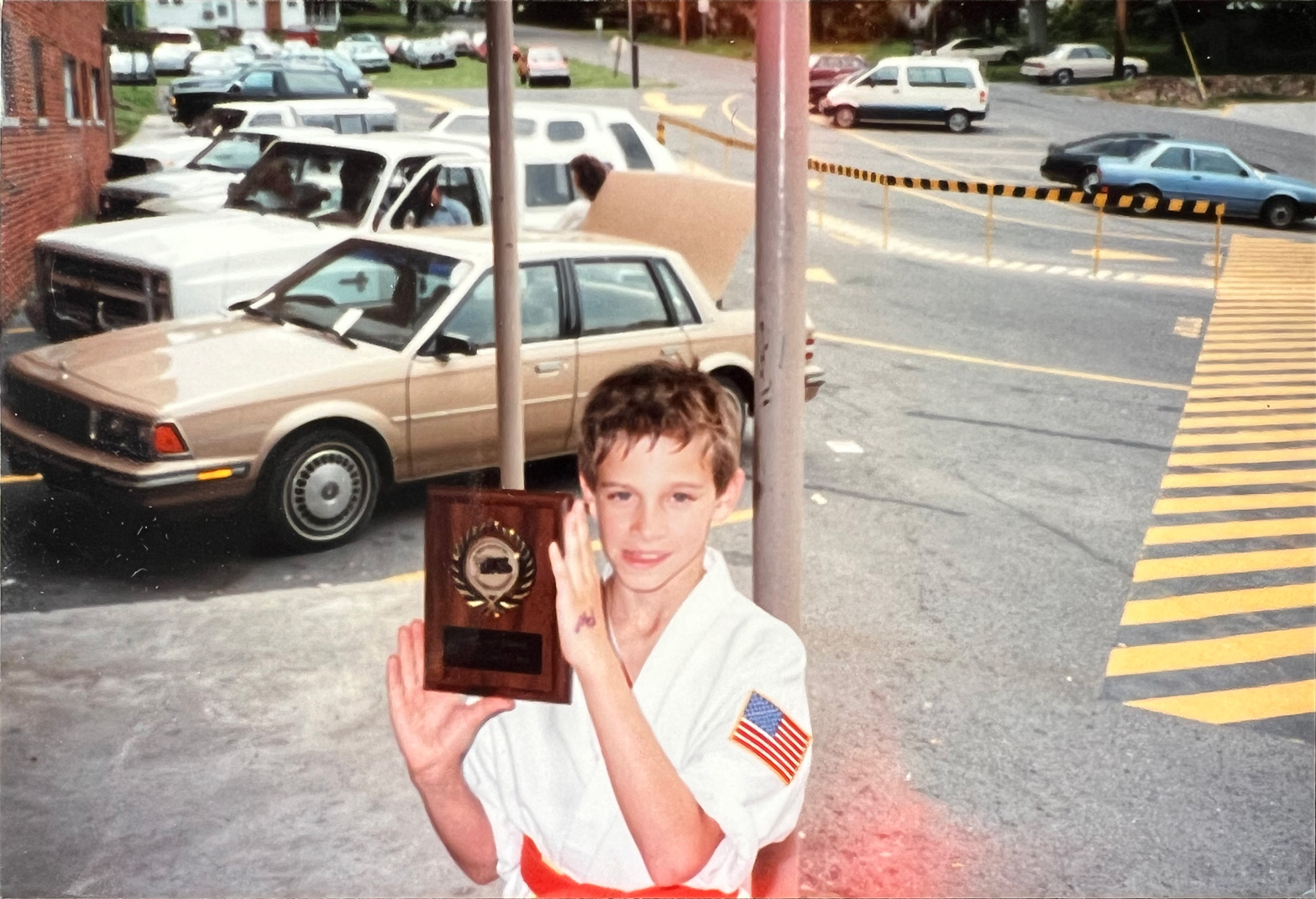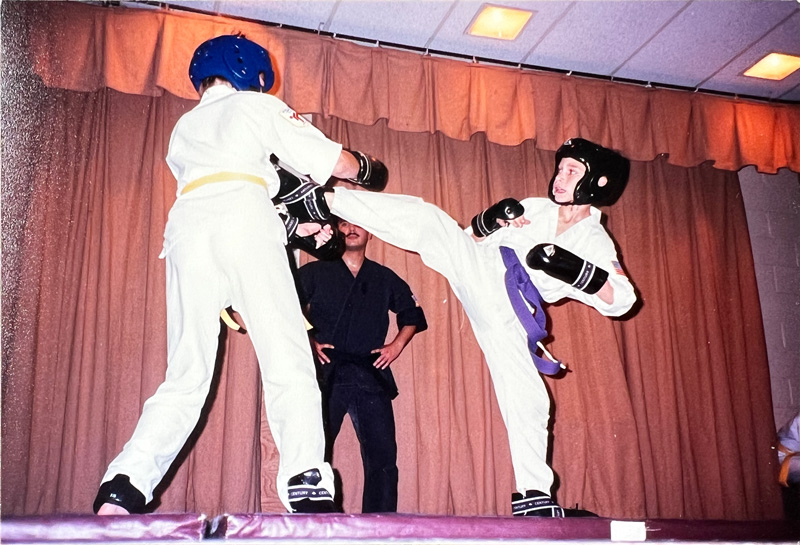Finding the Wins
Posted

I will never forget my first real tournament. That’s me above holding up my trophy from that day. My father took myself and several other students all the way from Augusta, GA, to Chattanooga, Tennessee for it. I was only nine or ten years old, but I will never forget how bad I wanted to make my dad proud.
When the first match started I was so nervous I couldn’t even think straight. The pressure was crushing. I had never competed like this before. My opponent came at me and all I could think was that I needed to keep him away from me, so I threw a sidekick. It lets you push your enemy back and keep them at leg length (I’m on the right in the below photo using a sidekick). I didn’t expect to score with it, I just wanted some space, but the kick landed and the referee awarded me my first point. I could hear my dad cheering, which felt great but I was still panicky.
When the ref restarted the match my opponent came at me again, so again I threw another sidekick, and again it scored a point. I won the match. Then the next match, and the next.. No kidding, all I did was throw sidekicks that whole tournament. I lost my fear and came to believe my sidekick was some kind of super weapon. The old saying is true: it ain’t dumb if it works!
But my luck didn’t hold. The other kids’ dads probably caught on and told them I was just doing the same thing over and over again and how to counter it. I eventually lost some matches and came in forth place overall.
I wept. Terribly. I was so dissappointed. I felt like a complete failure. I remember being so confused because my dad seemed excited for me, but I thought he was just trying to cheer me up so I remained despondent. Eventually he knelt down, took me by the shoulders and looked me straight in the eye and said, “Son, you just placed 4th out of 64 other kids in your first ever tournament. Nobody wins their first, they don’t even place. You were amazing and I’m so proud of you!” I felt the sincerity, and could finally feel good about what had just happened.

A mentor shared a bit of wisdom with me a few years ago: Careers are not linear. You are not going to win every match, and you’re not going to have great victory in every struggle you face, especially early in your career (and by early I mean the first 10-15 years). Here’s the key thing: You have to find and build on your successes as much as you learn from your failures. I had to internalize the success of placing at all in that tournament in order to recognize the things that went well so I could build on them.
You’re going to pitch a new learning tool for your company and ask for a thousand seats but only get approval for 50. You will write a standard for a new branching strategy that people will say they like, and then watch as only a few teams actually adopt it. You will have direct reports who confound you with a terrible attitude but very high aptitude and you’ll bang your head on the wall in frustration trying to help them.
These things will feel like failures. Instead, see the win in getting that first learning program progress. Take those 50 seats and build the best learning program you possibly can. Show the value of each one of those seats, and make sure your leaders know you can scale up or down as much as they want. Work with the teams using the new branching strategy and show how their failure rate is lower than teams that haven’t adopted it. Help that employee with the bad attitude find a role they can pour themselves into and enjoy watching them flourish.
Each of these experiences take months or years to fully grasp. Each of them helps you ease your nerves, learn new skills, and hone your intuition. These experiences become the foundation of your authority, and you simply cannot fake, skip, or shortcut that process.
I ended up really enjoying the competitive aspect of Karate. I didn’t win every tournament after that first one, but I was proud to take home a lot of trophies. My sidekick stayed a big part of my repertoire, but I added a lot of other go-to techniques to it and became a fairly well rounded fighter. When I think about those subsequent victories and how those lessons benefited my career, I can see now how it all started with that 4th place plaque.
